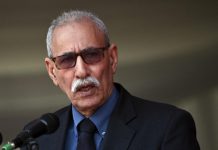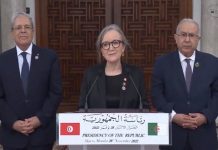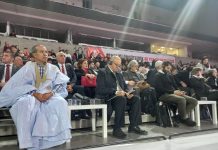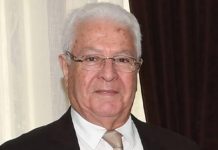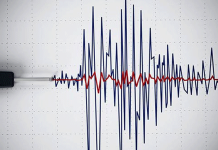ALGIERS-The Constitutional Court provided by the new Constitution is “a major player” an will have a key role in avoiding a paralysis of constitutional institutions that would plunge the country into political crisis with disastrous consequences, said Chairman of the Constitutional Council Kamel Fenniche.
In a statement to APS, Fenniche said that the Constitutional Court that would replace the Constitutional Council was “an added value” in the Algerian Constitution, in view of its new missions, in particular “the settlement of disputes that oppose constitutional powers, in such a way as to protect the country against possible political crises that lead to the paralysis of constitutional institutions.”
This prerogative is the main characteristic of the Constitutional Court provided for by the draft amendment of the Constitution that will be submitted to a popular referendum on next 1 November, he continued.
In this regard, the chairman of the Constitutional Council referred to the possibility of recourse by authorized authorities (President of the Republic, Speakers of both Parliaments Houses, the prime minister and the Government, as may the case be) to interpret the provisions of the Constitution, a measure that is likely to “preserve the stability of the country and avoid possible crisis resulting from an ambiguity or a misinterpretation.”
Revision of the Constitution: “If the people want change, it’s time to operate it,” says Presidnt Tebboune
“Such provisions also prevent any seizure or confiscation, whether voluntary or involuntary, of other prerogatives by any power. They will also enhance the foundations of democracy under the Constitutional Court that will ensure compliance with the Constitution by playing the role of arbitrator to ensure the balance of power,” said Fenniche.
According to him, this Constitutional body, which will be created in accordance with the next Constitution, will “protect the basic enshrined principles of democracy, namely alternation of power, the preservation of rights and freedoms as well as the protection of the opposition.
New Constitution: creation of independent institutions of monitoring
The president of the Constitutional Council described the constitutionalization and the creation of numerous monitoring and consultative institutions, under the coming Constitution, as a true step forward which illustrates a sincere willingness to respond to the people’s demands.
Indeed, the Court of Auditors role would be strengthened, as a higher independent institution entrusted with monitoring public assets and funds. It will exercise a posteriori control of the finances of the State, the local authorities, the public services as well as the state market capital.
The Court of Auditors will “contribute to promoting good governance and transparency in the management of the public finances, regarded as a key segment in the moralization of the public life …,” explained Fenniche.
The Court of Auditors’ mandate to review the State accounts represents an “essential provision which will confer credibility to the State budget,” he added.
The oversight institutions that would be constitutionalized, under the forthcoming Constitution, include the Independent National Authority for Elections that would guarantee transparency and regularity of elections,” which would restore trust between the governor and the governed.
The new Constitution also provides for the creation of a High Authority for Transparency, Prevention and the Fight against Corruption, which mission is to elaborate a prevention strategy against corruption, ensure its implementation, collect information on corruption and denounce it.
The amended Constitution, which will be voted on November 1st, provides for “the creation of a national observatory of civil society,” a consultative body that would involve associations in the management of public affairs.
Missions of Supreme Council of Magistracy to be reinforced –
Fenniche said that the revision of the Superior Council of the Judiciary composition, by excluding the Minister of Justice, being a member of the government, is intended to be “the greatest evidence of the willingness to enshrine powers separation and the independence of the Judiciary.”
Besides, the elected magistrates would represent 75% of the total number of members of the Superior Council of the Judiciary.
APS













